Home » Projects » COP15 Copenhagen » Participants
Consortium Member Participants in COP 15
Marine Biological Laboratory
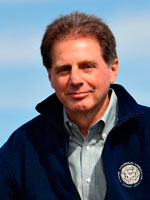 Gary G. Borisy
Gary G. Borisy
Director and Chief Executive Officer
Woods Hole Marine Biological Laboratory, Woods Hole, Massachusetts, USA
Dr. Borisy is director and CEO of the Woods Hole Marine Biological Laboratory (MBL), a leading center for research and education in the biological, biomedical, and environmental sciences. In this capacity Dr. Borisy oversees the MBL’s Ecosystems Center, whose scientists conduct long-term ecological studies at marine, freshwater, and terrestrial sites around the world, and who actively participate in formulating the scientific basis for key U.S. climate and environmental policy decisions. Dr. Borisy also oversees several international biodiversity initiatives at the MBL, including the International Census of Marine Microbes, the Encyclopedia of Life (EOL), and the Consortium for the Barcode of Life (CBOL). He chairs the EOL advisory board and is a member of the advisory board of CBOL. ... MORE
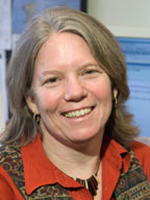 Linda Deegan
Linda Deegan
Senior Scientist, Ecosystems Center
Woods Hole Marine Biological Laboratory, Woods Hole, Massachusetts, USA
Dr. Deegan works on marine and freshwater ecosystems in polar, temperate, and tropical areas, with a special interest in fishes. As part of the Brown-MBL Graduate Program in Biological and Environmental Sciences, she is a professor in the Department of Ecology and Evolutionary Biology at Brown University. Dr. Deegan serves as office director for the joint NSF/NOAA/MBL Comparative Analysis of Marine Ecosystem Organization (CAMEO) program and is scientific co-chair of the International Estuarine Research Federation Meeting. She is also a member of the Ecological Society of America, the International Estuarine Research Federation, and the American Fisheries Society. She received a 2006 Fulbright Fellowship to study to study the effects of rainforest clearing on the biodiversity of streams in Brazil’s Amazon River ecosystem. Dr. Deegan received a B.S. in Biology from Northeastern University, a M.S. in Zoology from the University of New Hampshire, and a Ph.D. in Marine Science from Louisiana State University, Baton Rouge. ... MORE
Woods Hole Oceanographic Institution
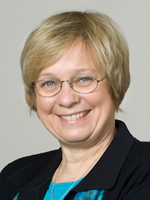 Dr. Susan K. Avery
Dr. Susan K. Avery
President and director, Woods Hole Oceanographic Institution
As an oceanographic leader with a background in atmospheric research, Avery has used her unique position to highlight the importance of ocean-atmosphere-land interactions in understanding whole Earth systems.
Avery came to WHOI from the University of Colorado at Boulder (UCB), where she served in interim positions as vice chancellor for research and dean of the graduate school, as well as provost and executive vice chancellor for academic affairs. From 1994-2004, she served as director of the Cooperative Institute for Research in Environmental Sciences (CIRES). Avery helped form an integrated science and assessment program that examines the impacts of climate variability on water in the American West. She also worked with the National Oceanic and Atmospheric Administration and the Climate Change Science Program to help formulate a national strategic science plan for climate research. Avery serves as the US National Committee chair to the UNESCO Intergovernmental Oceanographic Committee (IOC). She earned her doctorate in atmospheric science from the University of Illinois in 1978. ... MORE
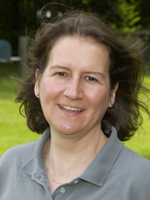 Dr. Carin Ashjian
Dr. Carin Ashjian
Biologist, Woods Hole Oceanographic Institution
Carin Ashjian is an associate scientist in the Department of Biology at WHOI. She graduated with a PhD in Oceanography from the University of Rhode Island in 1991. She did postdoctoral work at Brookhaven National Laboratory, the University of Miami, and Woods Hole Oceanographic Institution before joining the scientific staff at WHOI in 1996. Her research has focused on oceanography, zooplankton ecology, and biological-physical interactions in a range of the world’s oceans. Her recent work focuses on the impact of climate change on polar ecosystems and the greater Arctic system, including the human dimension. ... MORE
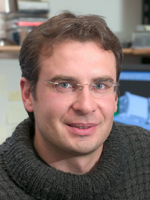 Dr. Richard Camilli
Dr. Richard Camilli
Woods Hole Oceanographic Institution
Richard Camilli is an Associate Scientist in the Department of Applied Ocean Physics and Engineering at the Woods Hole Oceanographic Institution (WHOI). In 2003 he received his PhD in Environmental Engineering from the Massachusetts Institute of Technology and was the recipient of the Society of Naval Architects and Marine Engineers Graduate Paper Award for his work in developing autonomous underwater vehicle technologies. In 2004 he was selected as a WHOI Deep Ocean Exploration Institute Postdoctoral Scholar. His interests include field robotics and payload sensor development for in-situ environmental monitoring and pollution mitigation. He has participated in over thirty oceanographic expeditions throughout the world, and has led numerous offshore oil spill cleanup operations, including several in the aftermath of Hurricanes Katrina and Rita. Much of his scientific research is focused on developing advanced technologies for observing carbon transport and transformation in the marine subsurface.
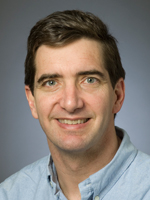 Dr. Scott Doney
Dr. Scott Doney
Marine chemist, Woods Hole Oceanographic Institution
Scott Doney is a senior scientist in the Department of Marine Chemistry and Geochemistry at WHOI. He graduated with a PhD from the Massachusetts Institute of Technology/Woods Hole Oceanographic Institution Joint Program in Oceanography in 1991 and was a postdoctoral fellow and later a scientist at the National Center for Atmospheric Research, before returning to Woods Hole in 2002. He was awarded the James B. Macelwane Medal from the American Geophysical Union in 2000, an Aldo Leopold Leadership Fellow in 2004, and the WHOI W. Van Alan Clark Sr. Chair in 2007. His science interests span oceanography, climate and biogeochemistry. Much of his research focuses on how the global carbon cycle and ocean ecology respond to natural and human-driven climate change, which may act to either damp or accelerate climate trends. A current focus is on ocean acidification due to the increase in the ocean of carbon dioxide and other chemicals from fossil fuel burning. He is currently the chair of the U.S. Ocean Carbon and Biogeochemistry Program and the U.S. Ocean Carbon and Climate Change Program. ... MORE
Woods Hole Research Center
Alessandro Baccini, Ph.D.
Assistant Scientist
Dr. Baccini is a remote sensing scientist whose interests focus on the use of satellite data for the monitoring of forest carbon, land cover, land cover change and the effects of environmental change on the terrestrial carbon cycle at the regional and global scale. Before joining the Center he was a research associate at Boston University and worked at the Food and Agriculture Organization of United Nations for the Forest Resources Assessment 1990 and 2000 monitoring tropical deforestation. He received his doctorate from Boston University. ... MORE
Andrea Cattaneo, Ph.D.
Senior Scientist
Dr. Cattaneo is an economist whose research focuses on the economics of tropical deforestation, in particular linking economy-wide models of drivers of deforestation to geographic information systems. He has experience in analyzing the design of payment programs for ecosystem services, the role of monitoring on program performance, and the use of environmental indices in the context of multi-objective decision-making when monetary valuation estimates are not available. Before joining the Center, Dr. Cattaneo worked for the International Food Policy Research Institute (IFPRI), the Economic Research Service (ERS) of the U.S. Department of Agriculture, and the Organisation for Economic Co-operation and Development (OECD). He obtained a Master of Science in Engineering (M.S.E.) in electrical engineering at the University of Pavia (Italy), and from Johns Hopkins University he received a second M.S.E. in Environmental Systems Analysis and his Ph.D. in Economics and Systems Analysis. ... MORE
Connie J. Clark, Ph.D.
Assistant Scientist
Dr. Clark is an ecologist with extensive interests in tropical forest ecology and conservation. Her work, which is predominately in Central Africa, seeks to inform and improve tropical forest stewardship through research, education, and capacity building. Her research is oriented toward understanding how various land use strategies, such as logging, mining, and protected area management, differentially impact tropical forest structure, diversity and carbon stocks throughout the Congo Basin. She has also worked as a conservation manager and research director for the Wildlife Conservation Society, Republic of Congo. Dr. Clark earned her M.S. from San Francisco State University and her Ph.D. from the University of Florida. ... MORE
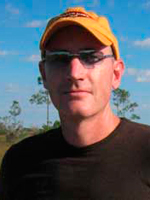 Michael T. Coe, Ph.D.
Michael T. Coe, Ph.D.
Associate Scientist
Dr. Coe is an earth system scientist who is particularly interested in the causes and consequences of water resource variability. He uses data and earth system computer models to study how climate variability interacts with human land and water management practices to cause changes in water quality and quantity. He is currently participating in projects in the Amazon and Mississippi River basins as well as the semi-arid regions of northern Africa. Dr. Coe previously spent seven years as a scientist at the Center for Sustainability and the Global Environment, University of Wisconsin-Madison and has been a visiting scientist at Lund University, Sweden, and the Max Planck Institute for Biogeochemistry, Jena, Germany. He received his Ph.D. in Atmospheric and Oceanic Sciences at the University of Wisconsin-Madison. ... MORE
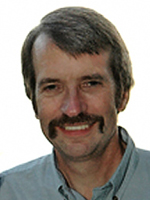 Eric A. Davidson, Ph.D.
Eric A. Davidson, Ph.D.
Senior Scientist / Co-Leader of Amazon Program
Dr. Davidson is an ecologist and soil scientist interested in the role of soil microorganisms as processors of carbon and nitrogen. He has studied the transfer of carbon and nitrogen gases from the soil to the atmosphere, where they contribute to warming of the earth. His research addresses how human management of the land affects this transfer of greenhouse gases. Dr. Davidson has held positions as National Research Council Associate at the NASA Ames Research Center and as Postdoctoral Research Associate in Soil Microbiology at the University of California, Berkeley. He earned his doctorate in forestry at North Carolina State University. ... MORE
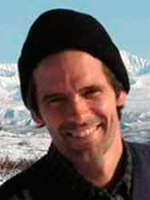 Scott Goetz, Ph.D.
Scott Goetz, Ph.D.
Senior Scientist
Dr. Goetz works on the application of satellite imagery to analyses of environmental change, including monitoring and modeling links between land use change, forest productivity, biodiversity, climate, and human health. Before joining the Center, he was on the faculty at the University of Maryland for seven years, where he maintains an adjunct associate professor appointment, and was a research scientist at NASA's Goddard Space Flight Center. He received his Ph.D. from the University of Maryland. ... MORE
Nora Greenglass, M.E.M.
Research Assistant
Ms. Greenglass is currently engaged in an effort to examine the role of forests in carbon storage in the northeastern United States. Other recent projects include an analysis of local and state climate policies in the United States as well as international carbon mitigation strategies. Her master's research focused on climate protection strategies for the electric utility sector in the southeastern United States. She received her B.A. in geology and environmental studies from Middlebury College and a Master of Environmental Management from Duke University. ... MORE
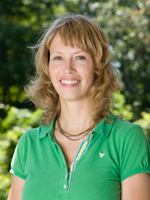 Tracy Johns, M.S.
Tracy Johns, M.S.
Policy Advisor / Co-Leader of REDD Initiative
Ms. Johns is a policy analyst specializing in the Center's programs in forest, climate, and energy-policy issues. She coordinates the policy activities of the Center related to the role of forests in climate. She also works with members of the Amazon and Africa programs on efforts related to monitoring deforestation, focusing on international, national and regional policies and programs to reduce deforestation, as well as efforts to include relevant local and regional stakeholders in the policy design and implementation process. She works with international and U.S.-based NGOs to develop and support strong climate and energy policies, both internationally and at the federal and state level. Ms. Johns leads the Secretariat of the Forum on Readiness for REDD, an international forum focused on practical issues of readiness and implementation of activities to reduce emissions from deforestation in developing countries. Ms. Johns received her M.S. from Arizona State University's Center for Science, Policy and Outcomes in Forest Ecology and Environmental Policy. ... MORE
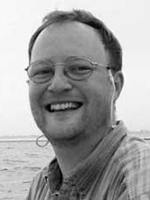 Josef Kellndorfer, Ph.D.
Josef Kellndorfer, Ph.D.
Associate Scientist / Co-Leader of REDD Initiative
Dr. Kellndorfer's research focuses on the monitoring and assessment of terrestrial and aquatic ecosystems. Using geographic information systems (GIS) and remote sensing, he studies land-use, land cover and climate change on a regional and global scale. Currently, he is leading a NASA-funded project to generate the first high-resolution aboveground biomass and carbon dataset of the United States based on the integration of space shuttle radar and satellite imagery. Before joining the Center, he was an assistant research scientist with the radiation laboratory in the department of electrical engineering and computer science at the University of Michigan. Dr. Kellndorfer holds a degree in physical geography and a doctorate in geosciences from the Ludwig-Maximilians-University in Munich, Germany. ... MORE
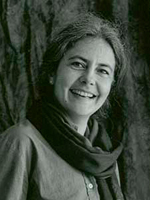 Nadine T. Laporte, Ph.D.
Nadine T. Laporte, Ph.D.
Associate Scientist
Dr. Laporte is a biologist whose research centers on the applications of satellite imagery to tropical forest ecosystems, including vegetation & carbon mapping, land-use change, deforestation causes and consequences on carbon and biodiversity. She has been involved in numerous environmental projects in Central Africa over the past ten years, working with in-country scientists, foresters, and international conservation organizations to develop integrated forest monitoring systems and promote forest conservation. She received her doctorate in tropical biogeography from l'Université Paul Sabatier in Toulouse, France. ... MORE
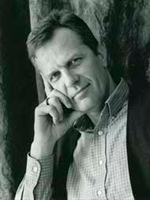 Daniel C. Nepstad, Ph.D.
Daniel C. Nepstad, Ph.D.
Senior Scientist
Dr. Nepstad is a tropical ecologist whose research has focused on the response of Amazon forests to climate change and fire. In 1998, he developed the Amazon Scenarios program, which simulates the future of the Amazon under a range of policy scenarios. He led the Center’s Amazon Program and REDD initiative (focused on bringing tropical forests into the UN climate treaty) until mid-2008, when he left to became the Chief Program Officer for the Gordon & Betty Moore Foundation’s Environmental Conservation Program. Dr. Nepstad returned to the Center to build a scientific and conceptual framework for addressing the global land crisis, with an initial focus on the Amazon and Brazil. He was founding president of the Center’s main partner in Brazil (IPAM) and co-founder of both Aliança da Terra and the international Roundtable on Responsible Soy (RTRS). Dr. Nepstad holds a Ph.D. from Yale University. ... MORE
John R. Poulsen, Ph.D.
Assistant Scientist
Dr. Poulsen is an ecologist with broad interests in the maintenance and regeneration of tropical forests and biodiversity. Most of his research has focused on the effects of anthropogenic disturbance, such as logging and hunting on forest structure and diversity, abundances of tropical animals, and ecological processes. He has conducted his research in Central Africa, where he has also worked as a conservation manager, directing projects to sustainably manage natural resources around parks and reserves. Dr. Poulsen holds a M.Sc. in Conservation Biology from San Francisco State University and a Ph.D. from the University of Florida. ... MORE
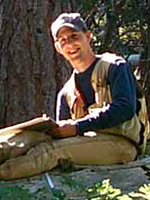 Wayne S. Walker, Ph.D.
Wayne S. Walker, Ph.D.
Assistant Scientist
Dr. Walker is an ecologist interested in the application of remote sensing and GIS technologies to the assessment and monitoring of forest ecosystems. In particular, his work focuses on the provision of broad-scale measurements and maps of forest structural attributes (e.g., canopy height, aboveground biomass, etc.) and land cover/land use change for use in climate modeling, habitat management, and ecosystem conservation. He holds degrees in forest ecology (M.S.) and remote sensing (Ph.D.) from the University of Michigan. ... MORE
 Gary G. Borisy
Gary G. Borisy

 Linda Deegan
Linda Deegan Dr. Susan K. Avery
Dr. Susan K. Avery Dr. Carin Ashjian
Dr. Carin Ashjian Dr. Richard Camilli
Dr. Richard Camilli Dr. Scott Doney
Dr. Scott Doney Michael T. Coe, Ph.D.
Michael T. Coe, Ph.D. Eric A. Davidson, Ph.D.
Eric A. Davidson, Ph.D. Scott Goetz, Ph.D.
Scott Goetz, Ph.D. Tracy Johns, M.S.
Tracy Johns, M.S. Josef Kellndorfer, Ph.D.
Josef Kellndorfer, Ph.D. Nadine T. Laporte, Ph.D.
Nadine T. Laporte, Ph.D.  Daniel C. Nepstad, Ph.D.
Daniel C. Nepstad, Ph.D. Wayne S. Walker, Ph.D.
Wayne S. Walker, Ph.D.